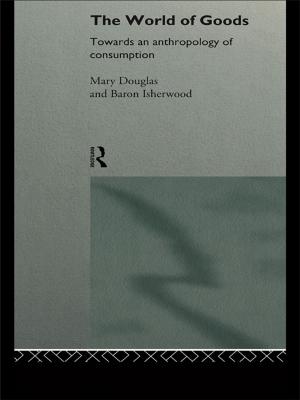| Author: | Professor Ellis Cashmore, Ellis Cashmore | ISBN: | 9781134874897 |
| Publisher: | Taylor and Francis | Publication: | September 9, 2002 |
| Imprint: | Routledge | Language: | English |
| Author: | Professor Ellis Cashmore, Ellis Cashmore |
| ISBN: | 9781134874897 |
| Publisher: | Taylor and Francis |
| Publication: | September 9, 2002 |
| Imprint: | Routledge |
| Language: | English |
Why all the fuss over television? It is blamed for an assortment of evils, including violence, shortened attention spans, the decline of literacy and political indoctrination. In this scintillating and approachable book, Ellis Cashmore weighs up the theories and evidence. He argues that much of the panic is without foundation and that the single most important danger posed by TV is that it encourages us to spend too much. Cashmore agrees with many writers that television is an elemental force in today's culture, but he offers us a completely different account of how and why this has come about. It is an evaluation that will surprise, provoke and delight. In essence, Cashmore argues that television is the central apparatus of consumer society and its success is measured not in terms of whether we enjoy programs, but how much we spend as a result of watching them. It is a book that should be read by anyone who watches television and wants to know what it is doing to them.
Why all the fuss over television? It is blamed for an assortment of evils, including violence, shortened attention spans, the decline of literacy and political indoctrination. In this scintillating and approachable book, Ellis Cashmore weighs up the theories and evidence. He argues that much of the panic is without foundation and that the single most important danger posed by TV is that it encourages us to spend too much. Cashmore agrees with many writers that television is an elemental force in today's culture, but he offers us a completely different account of how and why this has come about. It is an evaluation that will surprise, provoke and delight. In essence, Cashmore argues that television is the central apparatus of consumer society and its success is measured not in terms of whether we enjoy programs, but how much we spend as a result of watching them. It is a book that should be read by anyone who watches television and wants to know what it is doing to them.















